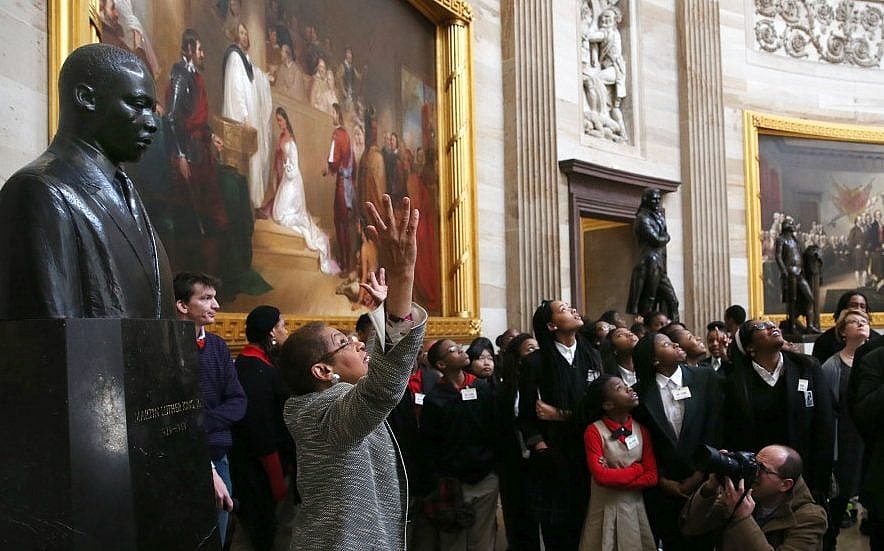Black History is an odd celebration. It is essentially a retelling of the past that is “limited” to one month of the year, which in fact, only continues legacies of denial and denigration of Black life and Black contributions.
In many ways, this country still refuses to acknowledge or make amends for the travesties it has inflicted upon Black bodies and Black communities from enslavement to mass incarceration. All too often, Black accomplishments, achievements, and triumphs have been marginalized and undermined and, at its worst, our contributions suffer from symbolic annihilation and benign neglect.
I have studied, taught, shared and celebrated Black history and I find myself always returning to the same question once raised by preeminent scholar W.E.B. Du Bois, “Where would America be without her Negro people?” As Du Bois, Carter G. Woodson, Mary McLeod Bethune, and so many other scholars have argued, Black history is in fact United Stated history and as Dr. Woodson articulated, Black history is the celebration of Blacks in history.
Why then are we relegated to praising our achievements for just 28 to 30 days a year? In too many instances, K-12 teachers and administrators integrate variations of “Black history” into their curriculum for just a month. Similarly, faculty at colleges and universities deflect Black history to Black/Africana/Pan-African Studies programs while students who major in this discipline are constantly questioned about the validity of their degree. The question then really centers on how useful is it to study Black history, Black communities and Black life?
READ MORE: BLACK WOMAN DESIGNS STRANGE FRUIT QUILT
Teaching lies as the truth
Too many students still suffer from lies about Black history that their teachers told in packaged narratives fixated on compliance, complacency and exceptionalism. Too many of our students attend schools that teach lessons that alienate them from the school and themselves.
If we are to properly teach the tenets of Black life in America, we must understand that Rosa Parks did more than sit on a bus. Rev. Dr. Martin Luther King, Jr.’s life’s work isn’t just about a one-day, highlight reel. The Tuskegee Institute, Howard University, and other Historically Black Colleges and Universities were never created as a measure of “school choice.”
Our history is richer, deeper, more introspective, more valiant, and more debonair than the pithy blurbs included on posters hung in your child’s school. From underground railroads, Sojourner Truth, Ida B. Wells-Barnett, and the Freedman’s Bureau to Septima Clark, Ella Baker, Dianne Nash, and freedom rides; from Bloody Sundays to civil disobedience; from Maroon societies and Gullah culture to Black Wall Street, Black liberation theology, and Mississippi Freedom Schools, the need for teaching and learning Black history is more relevant today than it has ever been. And, more importantly, it is time we let go of this pattern of marginalizing these lessons into a singular month.
America reimagined
We are entrenched in a biased and convoluted reimagining of U.S. history with statues, flags, monuments, and buildings still reminding us of who we “used” to be. Our history is being attacked and we must remain in constant battle to keep our humanity and have our stories told with dignity and respect. We cannot allow white logics to maintain the dominant narrative while suppressing “other people’s histories.” We cannot allow the whitewashing to continue, especially as institutions, organizations, and even local and federal governments invest in a particular reimaging of history that is more exclusive than inclusive.
READ MORE: U.S. STUDENTS ARE NOT LEARNING THE FULL TRUTH ABOUT SLAVERY
Black History Month should be a way to highlight and identify the manifold contributions that we have made to this country. Still as others have argued, Black History must be taught, celebrated, and appreciated each and every day, knowing that the appraisal of a people’s history is intrinsically connected to how they are valued (or not) in the overall wider society.


